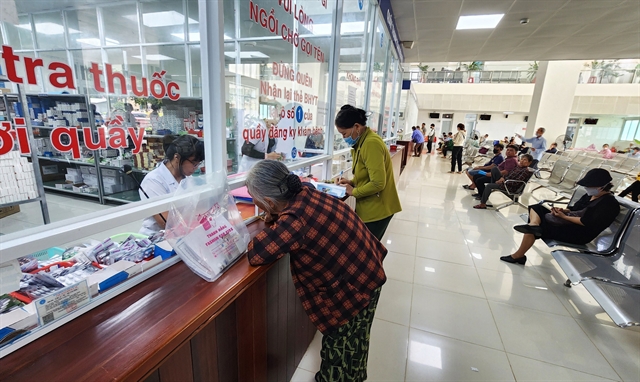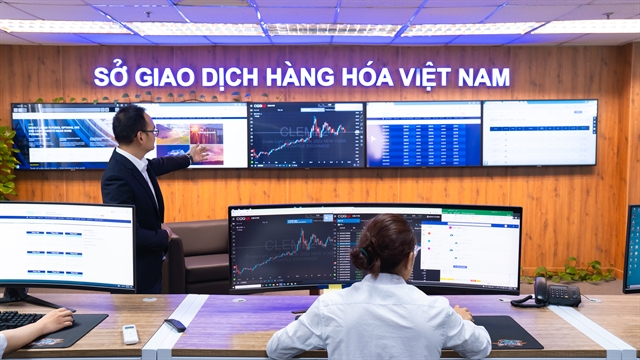 Media-OutReach Newswire
Media-OutReach Newswire

A positive mindset AND access to supportive resources isbest way to tackle the issue
Release of 'The Long Walk', starring Clear AmbassadorCristiano Ronaldo, sees him share his own resilience story
SINGAPORE - MediaOutReach - 13 June 2019 - Clear, a global anti-dandruff hair care brand of Unilever, todayannounces the launch of a global campaign - #KeepAClearHead - aimed atequipping young people with the support and tools they need to become moreresilient in the face of rising social anxiety. To help highlight the issue, the brand has released 'The Long Walk', afilm starring celebrity ambassador Cristiano Ronaldo which gives viewers aninsight into the journey he takes in preparing for a match. In the film, Ronaldo urges young people to keepa clear head as they go through their own Long Walk, encouraging them to bemore resilient in the face of life's challenges.
In TheLong Walk, Ronaldo explains: "I havetaken this walk a thousand times and still the first step is the hardest. I canhear my heart beating in my head, but I give each beat a name: Spirit, courage,greatness. As the noise rises around me, a roar rises in my throat. Yourlove makes me strong, your hate makes me unstoppable."
Clearbelieves that everyone should be able to perform at their best. However, socialanxiety, defined by the 'fear of being judged', can stop people from performingat their full potential. Globally, over 284 million individuals suffer fromanxiety disorders[1],a quarter of whom are between the ages of 10 and 24[2].While anxiety disorders often develop during adolescence and early adulthood[3],social anxiety tends to have an earlier onset - between the age of 5-10 onaverage[4],and can have consequences that prevents individuals from reaching their best potential.Social anxiety has become a major problem for many young people around theworld as more and more expectations are placed on them to succeed. Now more than ever before, as a consequence ofour 'always on' culture and lives lived in full view through social media, youngpeople find themselves under intense scrutiny and pressure to perform.
Todevelop a world-leading approach to helping young people build resilience andprevent social anxiety, CLEAR is working in partnership with the ResilienceResearch Centre (RRC) at Dalhousie University and Dr. Michael Ungar, Director of the RRC at Dalhousie Universityand author of Change Your World: The Science of Resilience and the True Pathto Success. Ungar, is one of the world's leading social scientistswhose work is raising awareness of the growing issue of social anxiety and theneed to shift our focus to equipping young people with the supports they needto achieve both ruggedness AND resourcefulness to be able to tackle life's manychallenges.
"To understand social anxiety, onehas to distinguish between a social anxiety disorder, which is the most severeform of the problem and debilitating in more than one area of a person's life,and what is called "non-clinical" social anxiety which is far more common. Moreserious social anxiety has long-term negative consequences for young people soit's important to recognise the early signs of the disorder and prevent evenmild social anxiety before it gets worse," said Ungar.
Together with Clear, Ungar and his team ofresearchers are showing that one's ability to overcome social anxiety andchallenging problems in life depends on both how rugged we are as individuals,and how resourced and supported we are by our families, friends, co-workers andcommunities. Ungar explains why Cristiano Ronaldo is the true personificationof resilience: "His life teaches us that to be successful and resilient, twothings are important. First, we need to be a rugged individual, which meanstaking full advantage of our talents and being positive about our future.Second, we need to be a resourced individual, with people who believe in us andthe opportunities to put our talents to good use. Ronaldo has both strengths --he knows how to use his incredible talent, and his many supports, including thelove of his fans, to realise his full potential. When we are both rugged andresourced, we are far more likely to become our very best selves."
Clearis committed to enabling people to perform at their best, driving a positivechange both by addressing the global issue of social anxiety and working with theRRC to develop programs and resources designed to build resilience, so that youngpeople can better cope with social anxiety. #KeepAClearHead will see the brandworking in partnership with Michael Ungar and his team to develop a curriculumand resources hub which will be rolled out globally and will help young peopleassess their levels of ruggedness and resourcefulness and how to develop newstrategies to find and use the resources they need to better tackle socialanxiety. The brand will also leverage pop culture through a partnership withMarvel to create a series of thought-provoking superhero short films andinspiring edutainment content to help young people understand the importance ofbuilding resilience and recognising the resources around them to better copewith self-doubt and social anxiety.
"Clearhelps people to defy judgement and perform at their best. As an anti-dandruffshampoo, we want people to look and feel their best by clearing dandruff, whichcan be a cause of social anxiety. However, we believe we can play a bigger rolein tackling the need to build resilience in young people to help them deal withevery facet of social anxiety. Working in partnership, we want to build ageneration of resilient youths who are able to perform at their best, despiteincreasing social pressures," said Tri Tran-Tue, Global Brand Vice President,Clear, Unilever.
Tolearn more about #KeepAClearHead and to watch The Long Walk, visit https://www.clearhaircare.com/arabia/en/keepaclearhead.html
Formore information on social anxiety among youths, please refer to the appendix.
APPENDIX
#KEEPACLEARHEAD:TACKLING THE GROWING GLOBAL ISSUE OF SOCIAL ANXIETY BY HELPING TODAY'SGENERATION OF YOUNG PEOPLE DEVELOP RESILIENCE.
Introduction
Tounderstand social anxiety, one has to distinguish between a social anxietydisorder, which is the most severe form of the problem and debilitating in morethan one area of a person's life, and what is called "non-clinical" socialanxiety which is far more common. More serious social anxiety has long-termnegative consequences for young people so it's important to recognise the earlysigns of the disorder and prevent even mild social anxiety before it getsworse.
Michael Ungar, Director of theResilience Research Centre at Dalhousie University and author of Change YourWorld: The Science of Resilience and the True Path to Success
"To be at the top of mygame, I have to be at my very best inside and out. We are only at our best whenwe fight against the best; I welcome strong rivals as they make me stronger.Their fans may boo me, but rather than let that tear me down, I channel theirhate to build me up and be unstoppable."
Cristiano Ronaldo, footballsuperstar and Clear global ambassador
SocialAnxiety: a growing global issue
In an 'always on' world,where we increasingly live our lives in full view and open to public scrutinyvia social media, the issue of social anxiety is becoming a globalproblem. Over 284 million individualssuffer from anxiety disorders[5], a quarter of whom arebetween the ages of 10 and 24[6]. While anxiety disordersoften develop during adolescence and early adulthood[7], social anxiety tends tohave an earlier onset - between the age of 5-10 on average[8], and can have consequencesthat prevents individuals from leading fulfilling lives later in adulthood.
The most common held view onhow best to deal with social anxiety tends to focus on developing copingstrategies from within ourselves - having a positive attitude or dispellingnegative thoughts that can trigger anxiety. Most solutions focus on becoming amore 'rugged' individual. However, we believe that this issue cannot be tackledby ruggedness alone; there is also a need to help young people become better'resourced' individuals that can recognise and find the supports necessary tobetter cope with life's challenges.
Whyis Clear getting involved?
As an anti-dandruffshampoo, Clear helps people look and feel their best by clearing dandruff,which can be a cause of social anxiety. However, we believe we can play an evenlarger role in building resilience in young people, helping them deal withevery facet of social anxiety. Working in partnership with the ResilienceResearch Centre (RRC) at Dalhousie University, we want to build a generation ofresilient youths who are able to perform at their best despite increasingsocial pressures.
The Director of the RRC,Michael Ungar, is one of the world's leading social scientists whose work israising awareness of the growing issue of social anxiety and the need to shiftour focus to equipping young people with the supports they need to achieve bothruggedness AND resourcefulness to be able to tackle life's manychallenges.
This year we are launching#KeepAClearHead, a global campaign which, together with our expert partners,global ambassadors and local influencers, to raise awareness of social anxiety,its causes and impact on young people and provide practical help and advice onhow best to cope with it.
Whatis social anxiety?
Social anxiety itself issomething normal and natural -- it is a mechanism that helps us to be aware ofdangers to survive. In fact, everyone experiences some mild form of socialanxiety throughout their lifetime when they are faced with new situations suchas changing schools, starting a new relationship or when applying for theirfirst job.
The most common definitionof social anxiety is a persistent fear of being in social situations where oneis exposed to the scrutiny of others, real or imagined. For example, a mildlevel of social anxiety can cause one to have trouble concentrating at work,performing on tests or make one feel tense when mixing socially.
SocialAnxiety: a global issue with localnuances
While social anxiety hasbeen observed in people all around the world, it can look and feel differentdepending on contexts and cultures. In a Western context such as the UnitedStates, it tends to appear as social withdrawal and anxiety when asked to speakwith, or in front of others. However, in Asian cultures social anxiety oftenappears as shame, or worry that one's actions will offend others. In China andother Asian countries, social anxiety is often referred to as social phobia. Astudy of social anxiety among Chinese people indicated a unique symptom: fearof making others uncomfortable or influencing them in a way that is notbeneficial. In Japan and Korea, there is Taijin Kyofusho (TKS) , which refers to worry about being observedor offending other people. Those with TKS generally avoid a wide range ofsocial situations.5
Risingsocial anxiety fueled by the pressures to succeed and the fear of missing out
Social anxiety has become amajor problem for many youths around the world as they are burdened withexpectations to succeed. We are also living in a time where the changingeconomic and social conditions make success increasingly difficult.
The rise of social mediahas added a new dimension to social anxiety as it offers youths a way ofdirectly quantifying friendships, viewing the friendship networks of others forcomparison, and providing immediate information about social events. Youthscannot help but compare their own popularity with that of their peers, andconstantly battle with the adolescent 'fear of missing out' (FOMO).
Today, social anxiety canbe a social survival mechanism, helping us avoid situations where we arevulnerable. An individual who experiences too much social anxiety tends to beoverly cautious and this can dampen the chances of performing at their best andachieving their goals. Too much social anxiety is also associated with pooroutcomes, as one might feel 'frozen' or 'paralysed', or just feel that they areunable to do things that show the best sides of themselves.
For instance, when it comesto first impressions, being overly concerned about saying the wrong thing mightlead us to say very little, which would be bad if it stops one from getting onwell with others, diminishing the desire to meet up again in the future. Theconstant fear that people will reject you when you make the smallest mistakecan snowball into serious long-term consequences like social isolation. This patternof behaviour can extend into adulthood and manifests in many different parts ofour lives. The good news is, social anxiety can be prevented, reduced, andmastered by becoming resilient.
Being'Rugged AND Resourced' are key to tackling social anxiety

When building resilience inan individual, we often focus on building up the individual's ruggedness whichinvolves mindset, positive attitude and ability to bounce back from challenges.However, ruggedness alone cannot explain why some people do well and othersstill fail when exposed to the same amount of stress.
Being rugged involvesstrong internal qualities like having good problem-solving and self-regulationskills, strong self-control, an ability to learn from past mistakes, andoptimism. For example, putting forward new statements about situations thatscare us and our ability to handle them and internalising these statementschallenges negative thinking with reason. This forms an individual's ruggedresponse to break the cycle of unnecessary concern and worry.
The new science ofresilience, however, is showing that the chances of success depends just asmuch on the quality of the support we get from our families, neighbours,friends, employers, schools, and even community programs which are there for uswhen we are confronted by unusual challenges in our lives. When the worldaround us helps bring out our best and provides opportunities to realise ourgoals, and encourages us to think positive thoughts, believe in ourselves, andchange our behaviours for the better, we are more likely to be bolder and moresuccessful in our day to day life.
This is especially relevantto the youths of today who need help but might not know where and how to getthe resources to learn how to cope. There are at least seven aspects of a youngperson's life known to help nurture resilience (see below).

Clear'spurpose and commitment
As a global brand, Clearhas been helping millions of people around the world to have the confidence toperform by clearing their dandruff, which is a source of anxiety and doubt. Wewant to inspire people to show the world what they are made of and help thembecome resilient, equipping them with the resources they need to better copewith anxiety and self-doubt.
We recognised and want toshed light on the realities of social anxiety and how it affects youthsglobally. We want to let them know that they are not alone and to help themdiscover and put into practice rugged AND resourceful practices to help thembetter cope with life's challenges, so they can perform at their best.
Clear is committed toaddressing the global issue of social anxiety by working with experts todevelop programs and resources designed to build resilience. #KeepAClearHead isthe introduction to an ongoing program being developed in close collaborationwith Michael Ungar and his international team at the RRC, that aims to advocatefor a new way of thinking about resilience. Going beyond the traditionalemphasis on individual ruggedness often advocated in Western thinking, ourupcoming curriculum and resources hub aims to address the current needs ofyouth today -- to support and help them recognize social anxiety, assess theirlevels of ruggedness and resourcefulness and develop new strategies to find anduse the resources they need to better tackle social anxiety.
In addition, we have alsoteamed up with Marvel to produce a series of superhero films, thought-provokingand inspiring edutainment content and activations to better engage with youthson the importance of building resilience by surrounding yourself withsupportive friends and family who can help you navigate life's twists andturns.
Globally, we continuouslyhope to drive positive change by rallying the support of our celebrityambassadors and local influencers, so that together, we can create a movementof resilient youths who are able to perform at their best.
#KeepAClearHead #NothingToHide
To find out more, visit https://www.clearhaircare.com/arabia/en/keepaclearhead.html
[2] Global Burden ofDisease Collaborative Network. (2017). Global Burden of Disease Study 2017Results. Seattle, United States: Institute for Health Metrics and Evaluation(IHME), 2018. Available from https://ghdx.healthdata.org/gbd-results-tool.
[3] Remes, O., Brayne, C.,& Lafortune, L. (2014). The prevalence of anxiety disorders across the lifecourse: a systematic review of reviews. TheLancet, 384, S66.
[4] Kessler, R. C., Aguilar ‐ Gaxiola,S., Alonso, J., Chatterji, S., Lee, S., Ormel, J., ... Wang, P. S. (2009). Theglobal burden of mental disorders: An update from the WHO World Mental Health(WMH) surveys. Epidemiologia ePsichiatria Sociale, 18, 23--33.
[6] Global Burden ofDisease Collaborative Network. (2017). Global Burden of Disease Study 2017Results. Seattle, United States: Institute for Health Metrics and Evaluation(IHME), 2018. Available from https://ghdx.healthdata.org/gbd-results-tool.
[7] Remes, O., Brayne, C.,& Lafortune, L. (2014). The prevalence of anxiety disorders across the lifecourse: a systematic review of reviews. TheLancet, 384, S66.
[8] Kessler, R. C., Aguilar ‐ Gaxiola,S., Alonso, J., Chatterji, S., Lee, S., Ormel, J., ... Wang, P. S. (2009). Theglobal burden of mental disorders: An update from the WHO World Mental Health(WMH) surveys. Epidemiologiae Psichiatria Sociale , 18, 23--33.
5. https://www.verywellmind.com/cultural-social-anxiety-disorder-3024706
Launched in 1975, Clear has one goal in mind, to provide the most effectivedandruff solution to its consumers. Since then, we've never looked back andhave set off to take the world by storm. Unlike many other shampoos which onlywash dandruff away, Clear shampoos are engineered to not only remove dandruffflakes, but also boost your scalp's natural self-defence, ending recurringdandruff concern.




